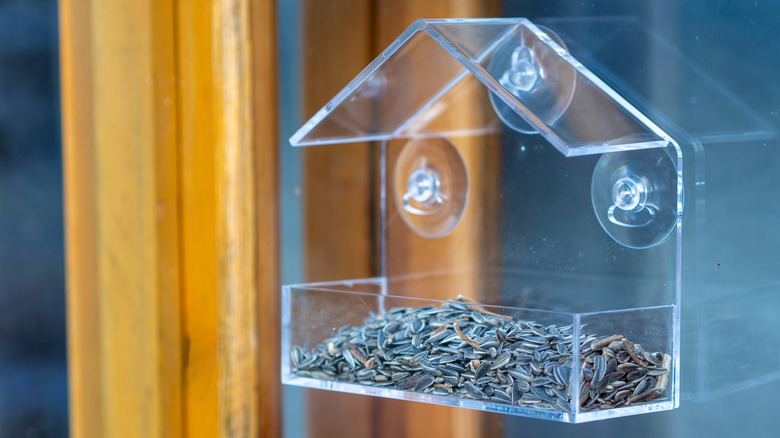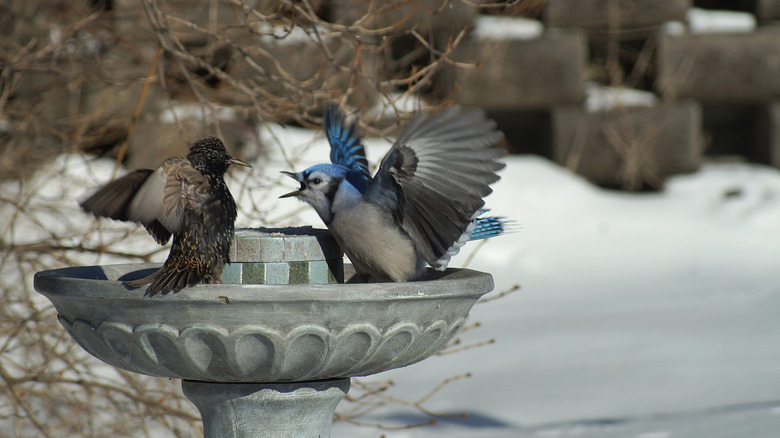The Beautiful Birds To Avoid Inviting To Your Yard
Attracting colorful songbirds to your yard is certainly an enjoyable experience, but some species can create more problems than they are worth. Blue jays, with their beautiful plumage and bold personalities, might seem lovely at first. However, these birds may become aggressive yard bullies, dominating feeders and scaring off smaller species like finches and chickadees. Their loud calls can ruin a quiet morning, and their territorial nature sometimes leads them to raid other birds' nests, destroying eggs or killing baby birds. They may start off small with an occasional visit here and there, but this can quickly lead to a full-scale takeover where blue jays take the lion's share of your seed while intimidating gentler species into avoiding your feeder.
Beyond just their behavior, blue jays have dietary habits that can be frustrating as well. They're notorious for burying acorns and seeds, which can lead to random plants growing in your garden and attract other pests, like squirrels, to your yard. Since blue jays love nuts, corn, and sunflower seeds, if you use those in your feeders, they will aggressively guard the food source. They can even mimic hawk calls to scare away competitors. This makes them very difficult to deter once they've claimed your space as their own. They are also large songbirds with wingspans that can reach 17 inches across, which means they require a sturdy perch and can damage smaller feeders that aren't designed for the weight.
How to discourage blue jays without harming other birds
If blue jays have already become a nuisance, there are some humane ways to make your yard less appealing to them while also welcoming other birds. Start by switching to feeders that cater to smaller birds, like tube feeders with small perches or caged designs that have smaller access holes. It's best to avoid platform feeders altogether as these can give blue jays an advantage. Instead of sunflower seeds, use safflower seeds, which make an excellent alternative: Most songbirds enjoy safflower, but blue jays typically don't. You can also offer upside-down feeders that use suet, which requires birds to hang while eating, something blue jays tend to avoid.
Specific landscaping choices can also help deter these birds. The color blue attracts more blue jays to your garden, and while avoiding it won't actively repel them, it won't invite them in either. If blue jays are nesting nearby, temporarily removing your feeders entirely for a couple of weeks might encourage them to move on to a better location. If they are still a problem, you can try visual deterrents like hanging old CDs or using predator decoys, though these only work temporarily. Keep in mind that complete elimination is usually not possible, and blue jays do play an important role in the ecosystem. But with some smart strategies, you can help restore a little more balance in your backyard bird community.

